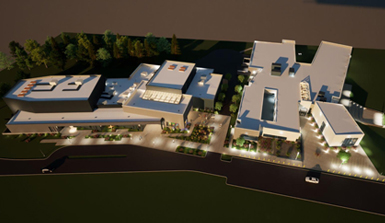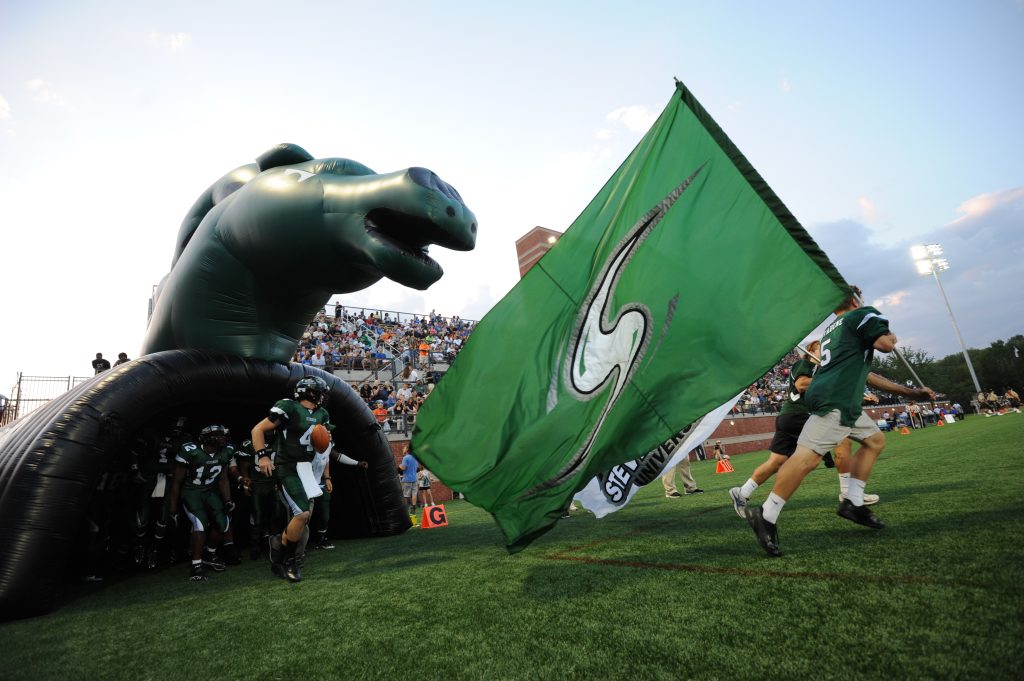
Sunday, April 19 marks the beginning of Medical Laboratory Professionals Week, or put more simply, Lab Week.
This year’s Lab Week comes at an unprecedented time in history, when healthcare professionals in Maryland, throughout the United States, and around the world are battling the global pandemic caused by the SARS-CoV-2 virus, which can result in the disease known as COVID-19.
The role of laboratory professionals in this fight has been brought to the forefront in the news, particularly as it relates to testing. Laboratory professionals throughout the United States and around the world are working, day and night, to bring in the new test kits, validate them, and then run patient samples to diagnose those that have the SARS-CoV-2 virus. Laboratory professionals have been at the forefront of investigating the use of convalescent plasma as a treatment option for those suffering from COVID-19. Eventually, the antibody tests will become available, and laboratory professionals will be responsible for performing those tests as well. Using these test results and considering the clinical presentation, physicians and nurses are better able to provide appropriate and timely care to these patients.
This year, Medical Laboratory Professionals Week comes at a time when the professionals who work in the clinical laboratory are more important than ever, though the work that they do is often mischaracterized or goes unnoticed. Those of us in higher education call this a “teachable moment”, and want the opportunity to correct those mischaracterizations.
First, Medical Laboratory Professionals are highly educated and board certified. In addition to our undergraduate degrees, many of us have Masters or Doctorate degrees and specialist certification. We have to study and be proficient in topics that many people have trouble understanding: Immunohematology, Flow Cytometric Studies, Virology, Mycology, Parasitology, Dyslipoproteinemia, Thrombotic Evaluation, Biochemistry and the list goes on.
Second, drive-thru or mobile “testing centers” for SARS-CoV-2 are actually specimen collection centers. There is absolutely no testing being performed at any of these centers. Rather, a sample is being collected, hopefully properly, and placed into a special viral transport medium. That sample is then transported to a facility, either a reference laboratory or a local hospital, staffed by medical laboratory professionals who then perform very advanced testing using RT-PCR on the sample detecting the presence of the virus. Laboratory professionals understand the theory behind this delicate technique and perform it using specific reagents and analyzers. Performed correctly, with appropriately calibrated analyzers and equipment, and with proper quality control measures in place, we are able to provide doctors and patients with the accurate results they require in order to make appropriate medical decisions. These tests did not exist six months ago. They were developed by laboratory professionals and are now being performed around the clock.
Finally, we don’t just read results from a “machine”. Laboratory professionals use highly complex and automated instruments and analyzers to perform testing. In addition, we are able to perform highly complex manual testing that requires years of study and interpretive skills to master. We can tell the difference between a promyelocyte and an immunoblast and distinguish Plasmodium falciparum from Babesia microti. Some of these analyses take longer than others. Rest assured, we are giving your sample the attention it deserves in order to provide the most accurate data that we possibly can. We know there is a patient behind every sample we receive. To us, you are more than a swab or a venipuncture. You are our parents, brothers and sisters, aunts, uncles, friends and colleagues. We give every sample the attention it deserves because we understand that most medical decisions are based on the data we provide.
We communicate regularly on technical and scientific matters with state and local health departments, the CDC and reference laboratories. Many Marylanders await the daily updates on the numbers of people infected with SARS-CoV-2. The laboratory professionals performing the testing take pride in providing the data that is being used to answer the question “are we flattening the curve?” and drive important decisions such as the reopening of our state.
This week, we recognize the current laboratory professionals, working day in and day out to not only fight the pandemic, but also perform other necessary testing for patients who are not affected by COVID-19.
We also recognize the students who have chosen this major and the profession. They are working hard at this extraordinarily unusual time to complete their degree requirements and enter the profession – when they are needed more than ever.
Happy Medical Laboratory Professionals Week to all laboratory professionals!





